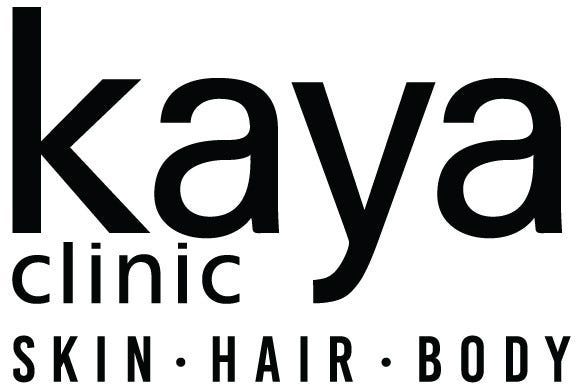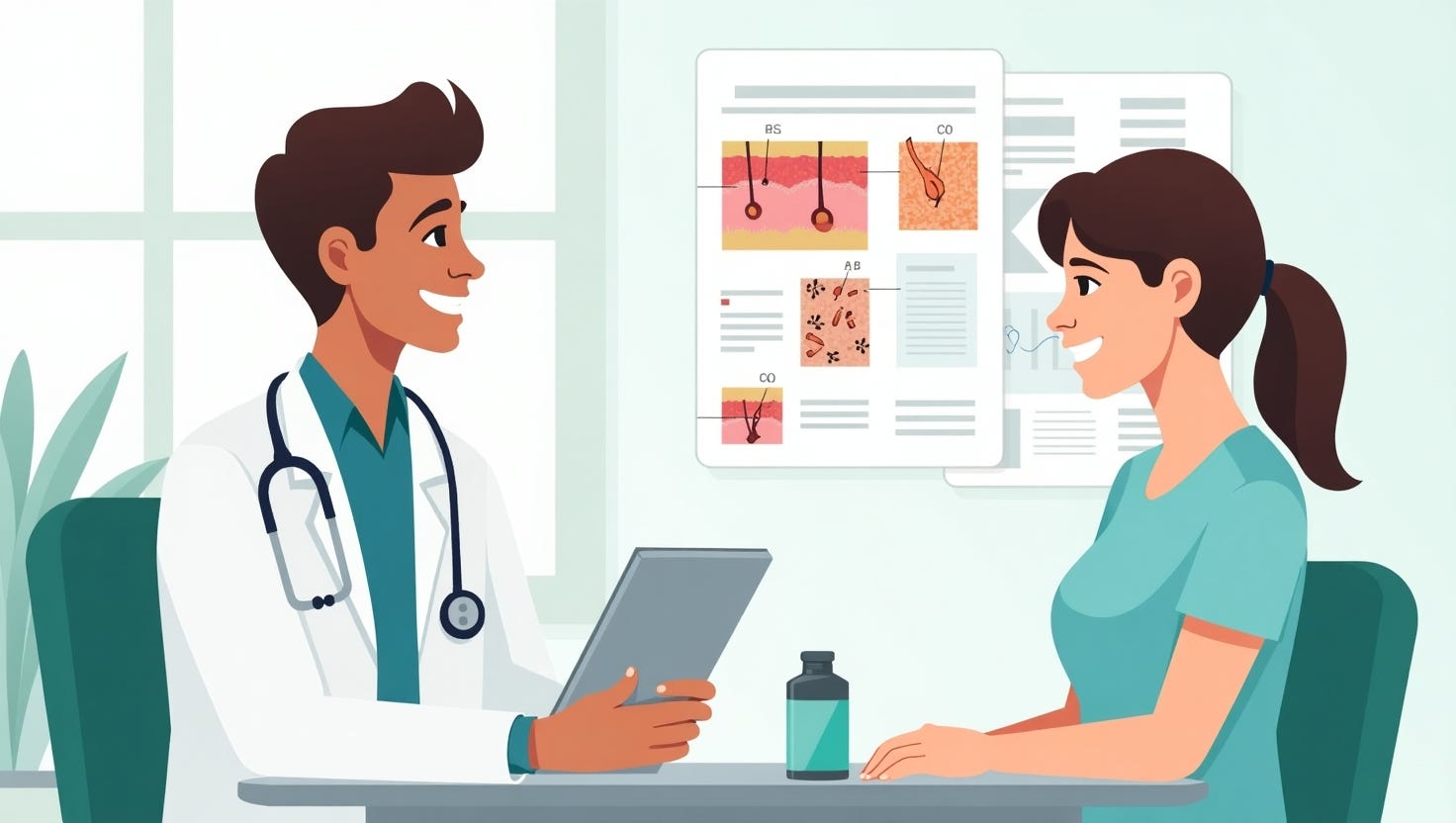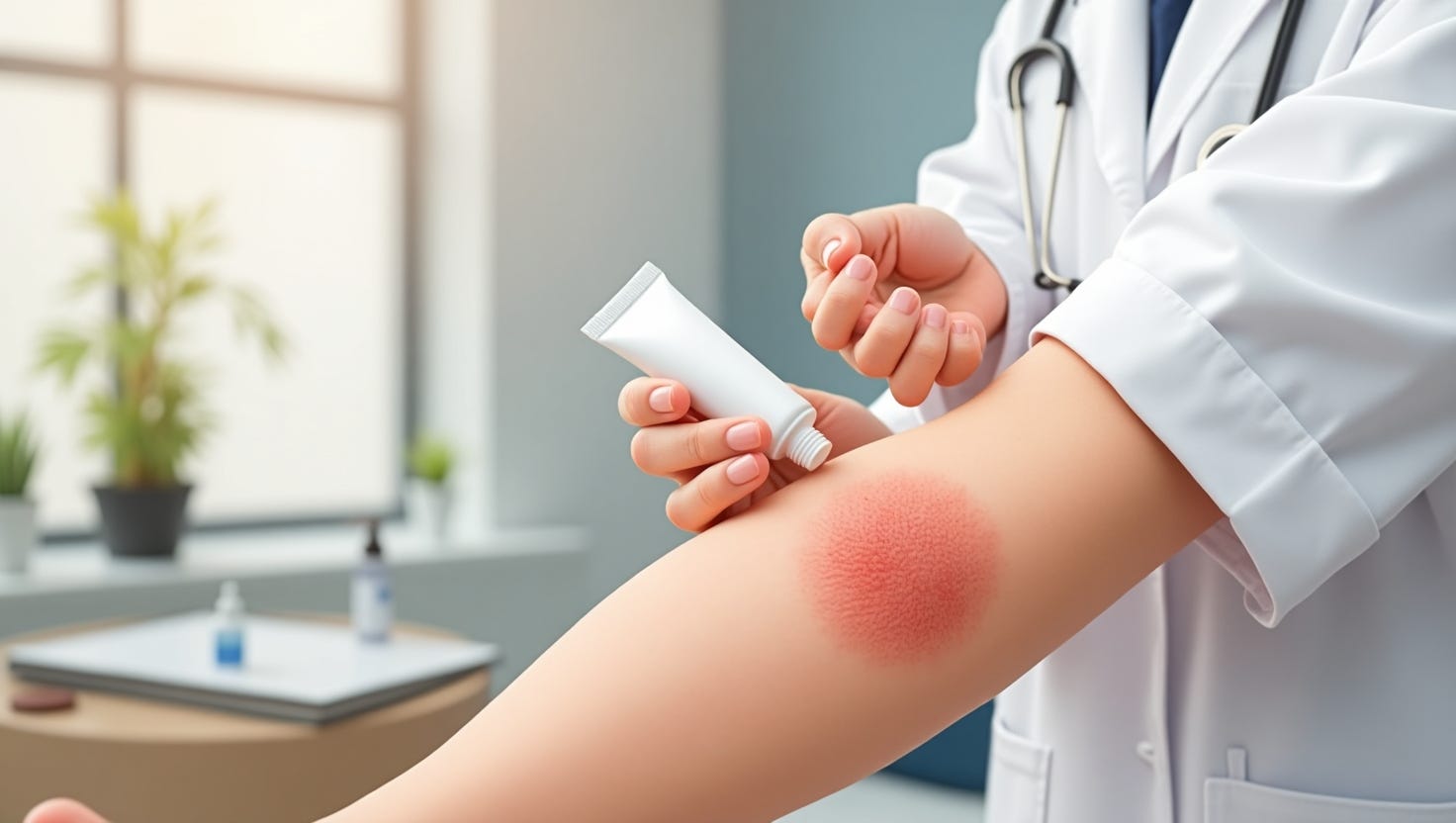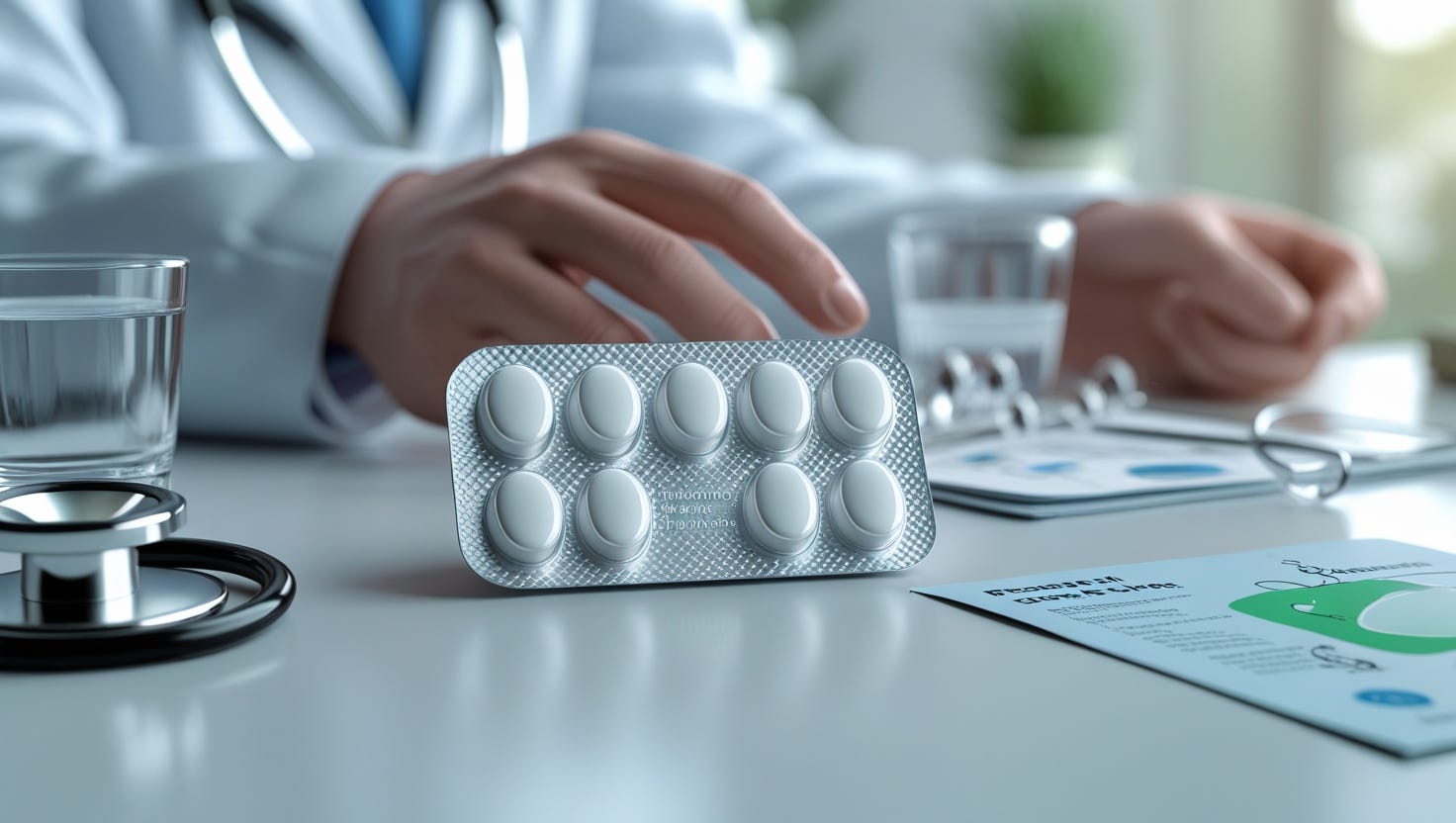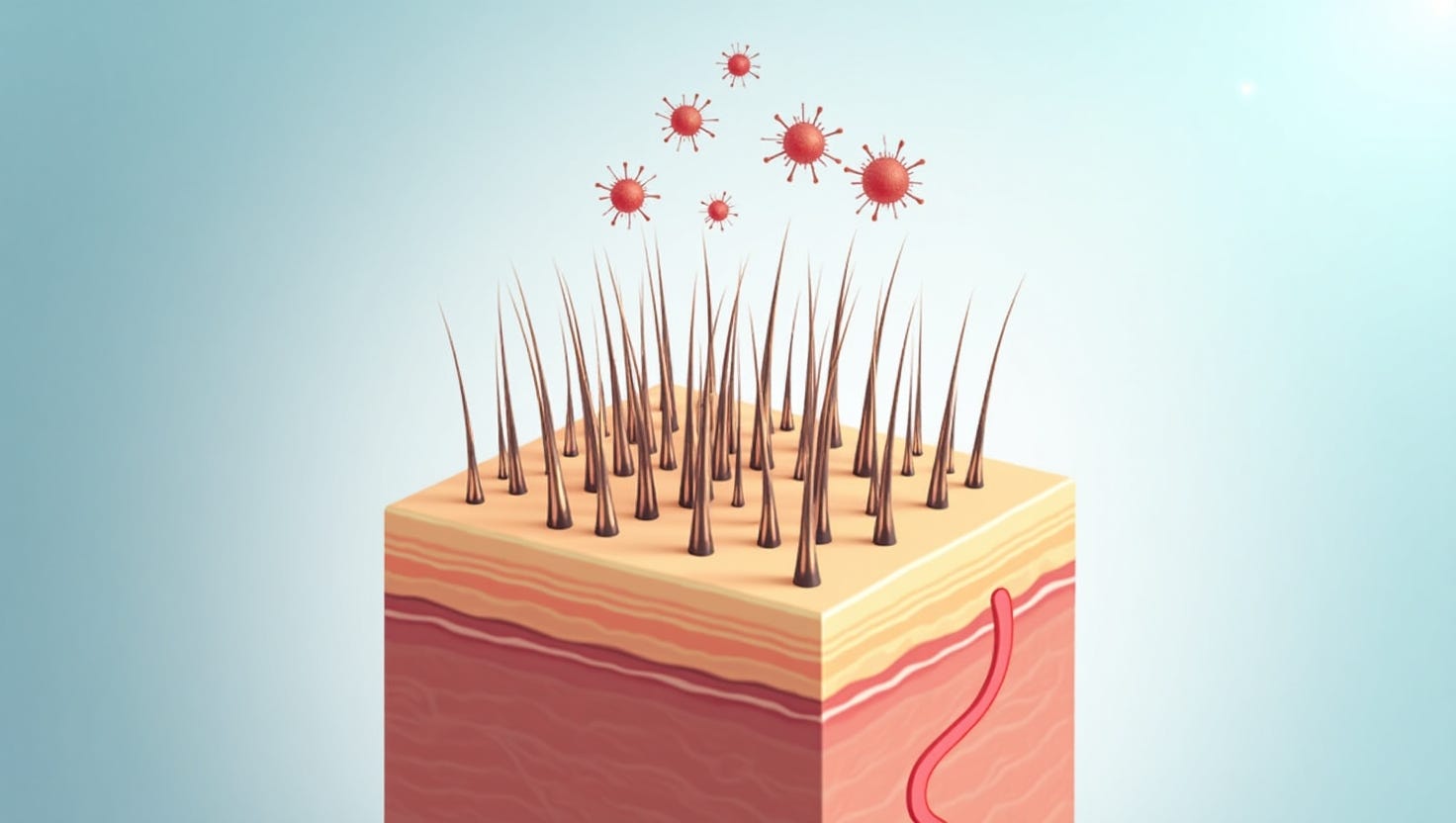Isotretinoin for Acne: Uses, Dosage, & Safety Information

Introduction
Isotretinoin is a potent oral medication primarily used to treat severe forms of acne, particularly cystic or nodular acne that does not respond to other treatments. It is a synthetic derivative of vitamin A and belongs to a class of medications known as retinoids. Isotretinoin works by targeting multiple factors that contribute to acne formation, including excess oil production, clogged pores, bacterial growth, and inflammation. By addressing these underlying causes, isotretinoin can lead to significant and long-lasting improvements in skin appearance.
Acne is a common skin condition that affects individuals of all ages, but it can be particularly challenging when it manifests in its severe forms. These types of acne can cause deep, painful cysts and nodules, often leading to scarring and significant emotional distress. When other treatments, such as topical medications and oral antibiotics, fail to provide relief, isotretinoin becomes a critical option.
The significance of isotretinoin lies in its ability to provide long-term remission of acne. Studies have shown that a single course of isotretinoin can result in a substantial reduction in acne lesions and a decrease in the frequency of future breakouts. This makes it a valuable tool for dermatologists in managing severe acne cases that have not responded to conventional therapies.
However, due to its potency, isotretinoin is typically reserved for cases where other treatments have been ineffective. Its use requires careful consideration and monitoring by healthcare professionals to manage potential side effects and ensure the safety of the patient.
What is Isotretinoin?
Isotretinoin, chemically known as 13-cis-retinoic acid, is a synthetic derivative of vitamin A. It was first synthesized in 1969 by scientists at Roche Laboratories in Switzerland, initially as a potential treatment for skin cancer. However, subsequent studies revealed its efficacy in treating severe forms of acne, leading to its approval by the U.S. Food and Drug Administration (FDA) in 1982 .
Over the years, isotretinoin has become a cornerstone in the treatment of severe, treatment-resistant acne. Its development marked a significant advancement in dermatology, providing an effective solution for individuals suffering from debilitating acne that did not respond to other therapies.
How It Works in Treating Acne
Isotretinoin addresses multiple factors that contribute to acne development:
-
Reduction in Sebum Production: One of the primary actions of isotretinoin is the significant reduction in sebum (skin oil) production. By shrinking the sebaceous glands, it decreases the amount of oil on the skin's surface, which is a key factor in acne formation .
-
Normalization of Follicular Keratinization: Isotretinoin helps normalize the shedding of dead skin cells within hair follicles, preventing the formation of comedones (clogged pores), which can lead to acne lesions .
-
Anti-Inflammatory Effects: The drug exhibits anti-inflammatory properties, reducing the redness and swelling associated with acne lesions .
-
Reduction in Bacterial Growth: By decreasing sebum production, isotretinoin creates an environment less conducive to the growth of Cutibacterium acnes, the bacteria implicated in acne development.
These combined effects make isotretinoin a unique and potent treatment option for severe acne. Its ability to address the core mechanisms of acne formation distinguishes it from other treatments, offering long-term relief for many patients.
How Does Isotretinoin Work to Treat Acne?
Isotretinoin, a potent oral retinoid, addresses multiple underlying causes of acne, making it a highly effective treatment for severe cases that do not respond to other therapies. Its action is multifaceted, targeting the primary factors contributing to acne development: excessive sebum production, inflammation, and abnormal skin cell turnover.
Reduction in Sebum Production
One of the hallmark effects of isotretinoin is its ability to significantly reduce sebum (skin oil) production. By shrinking the sebaceous glands, isotretinoin decreases the amount of oil secreted onto the skin's surface. This reduction in sebum is crucial because excess oil can clog pores, providing an environment conducive to acne-causing bacteria. Studies have shown that isotretinoin can decrease sebum excretion by approximately 90% within weeks of initiating treatment.
Anti-Inflammatory Effects
In addition to reducing sebum production, isotretinoin exhibits anti-inflammatory properties. It decreases the activity of inflammatory mediators in the skin, leading to a reduction in redness, swelling, and pain associated with acne lesions. This anti-inflammatory effect helps in alleviating the discomfort and potential scarring caused by inflamed acne.
Effects on Pore Size and Skin Texture
Isotretinoin also influences the structure of the skin. It normalizes the shedding of dead skin cells within hair follicles, preventing the formation of comedones (clogged pores). Furthermore, by reducing sebaceous gland size and activity, isotretinoin may lead to a decrease in pore size, resulting in smoother skin texture. These changes contribute to the overall improvement in skin appearance observed with isotretinoin therapy.
When is Isotretinoin Prescribed?
Isotretinoin is primarily prescribed for severe forms of acne, particularly nodular or cystic acne, which are characterized by large, painful, and deep-seated lesions. These types of acne often do not respond to conventional treatments such as topical retinoids, antibiotics, or hormonal therapies. In such cases, isotretinoin becomes a critical option due to its potent ability to target multiple factors contributing to acne formation.
Dermatologists may consider isotretinoin when acne leads to significant scarring or causes considerable psychosocial distress. The medication has been shown to provide long-term remission in many patients, reducing the frequency and severity of future breakouts. However, due to its potential side effects, isotretinoin is typically reserved for cases where other treatments have failed or are not suitable.
Other Skin Conditions Where Isotretinoin Can Be Beneficial
Beyond acne, isotretinoin has been utilized off-label to treat various other dermatologic conditions that are resistant to standard therapies. These include:
-
Hidradenitis Suppurativa: A chronic skin condition characterized by the formation of abscesses and scarring in areas such as the armpits and groin.
-
Severe Rosacea: A skin disorder causing facial redness, visible blood vessels, and sometimes acne-like breakouts.
-
Sebaceous Hyperplasia: Enlarged sebaceous glands leading to small, yellowish bumps on the skin.
-
Lamellar Ichthyosis: A genetic disorder resulting in the formation of large, dark scales on the skin.
-
Granulomatous Rosacea: A subtype of rosacea characterized by the formation of firm, red or skin-colored bumps.
In these conditions, isotretinoin's ability to reduce sebaceous gland activity and normalize skin cell turnover can lead to significant improvements. However, its use in these contexts is typically considered when other treatments have been ineffective, and it requires careful monitoring by healthcare professionals.
It's important to note that while isotretinoin can be highly effective for these conditions, it is not suitable for everyone. Patients must undergo thorough evaluation, including assessments of liver function and mental health, before starting treatment. Additionally, strict guidelines are in place to prevent its use during pregnancy due to the risk of severe birth defects.
Dosage and Administration
Isotretinoin is prescribed based on body weight and the severity of acne. The typical starting dose ranges from 0.5 mg to 1 mg per kilogram of body weight per day, administered in two divided doses. For instance, a person weighing 60 kg (132 lbs) would begin with a daily dose between 30 mg and 60 mg. Treatment usually spans 15 to 20 weeks.
In cases of severe acne—such as cystic acne or acne with scarring—higher doses up to 2 mg/kg/day may be considered, especially if the acne involves the trunk or is resistant to standard treatments.
How to Take Isotretinoin
Isotretinoin is available in capsule form and should be taken with food to enhance absorption. It's important to swallow the capsules whole with a full glass of water to minimize the risk of esophageal irritation.
If a dose is missed, skip the missed dose and continue with the next scheduled dose. Do not take two doses at once to make up for a missed dose.
Importance of Adherence to the Prescribed Dosage
Strict adherence to the prescribed dosage is crucial for the effectiveness of isotretinoin. Inconsistent dosing can lead to suboptimal results and increase the risk of acne relapse. Studies have shown that nonadherence to isotretinoin therapy is a significant factor in treatment failure.
Patients are advised to attend regular follow-up appointments with their healthcare provider to monitor progress and adjust the dosage if necessary. These appointments also help in managing any side effects and ensuring the safe use of the medication.
Potential Adjustments in Dosage
Dosage adjustments may be made based on the patient's response to treatment and the occurrence of side effects. If acne does not improve as expected, the healthcare provider may consider increasing the dose, provided the patient tolerates it well. Conversely, if side effects are severe, the dose may be reduced or the treatment may be discontinued.
It's important to note that while higher cumulative doses of isotretinoin are associated with a lower risk of acne relapse, the optimal cumulative dose can vary among individuals. Therefore, treatment plans should be tailored to each patient's needs and circumstances.
Safety Information and Side Effects
Isotretinoin is a potent medication used to treat severe acne, but it comes with a range of side effects—both common and rare—that require careful management.
Common Side Effects
Many individuals experience dryness in various parts of the body during isotretinoin therapy:
-
Dry Skin and Lips: The most frequently reported side effects include severely dry skin and chapped lips. These can be uncomfortable but are typically manageable with regular moisturizing.
-
Dry Eyes and Nose: Dryness can extend to the eyes and nasal passages, leading to discomfort and an increased risk of nosebleeds.
-
Other Common Effects: Patients may also experience headaches, joint or muscle pain, and temporary hair thinning.
These side effects often subside after the treatment period ends.
Rare but Serious Side Effects
While uncommon, isotretinoin can lead to more severe health issues:
-
Liver Damage: Elevated liver enzymes can occur, indicating potential liver stress. Regular monitoring through blood tests is recommended to detect any abnormalities early.
-
Mental Health Concerns: Some individuals may experience mood changes, depression, or suicidal thoughts. It's crucial to monitor mental health closely during treatment.
-
Vision and Hearing Issues: Rarely, isotretinoin can cause blurred vision, decreased night vision, or hearing problems.
-
Gastrointestinal Problems: There have been reports linking isotretinoin to inflammatory bowel disease (IBD), particularly ulcerative colitis.
Isotretinoin is highly teratogenic, meaning it can cause severe birth defects if taken during pregnancy. These defects can affect the brain, heart, face, and other organs. Due to these risks, isotretinoin is contraindicated during pregnancy.
Women of childbearing potential must use two forms of effective contraception during treatment and for at least one month after discontinuation. Pregnancy tests are required before, during, and after treatment to ensure safety.
Precautions Before Starting Treatment
Before beginning isotretinoin therapy, patients should:
-
Undergo Comprehensive Health Assessments: This includes liver function tests, lipid profiles, and mental health evaluations.
-
Discuss Mental Health History: Individuals with a history of depression or other mental health disorders should inform their healthcare provider, as isotretinoin may exacerbate these conditions.
-
Avoid Sun Exposure: Isotretinoin increases sensitivity to sunlight, raising the risk of sunburn. Patients are advised to use sunscreen and limit sun exposure.
-
Discontinue Use of Vitamin A Supplements: Since isotretinoin is a derivative of vitamin A, combining it with additional vitamin A can increase the risk of toxicity.
Regular follow-up appointments are essential to monitor for side effects and adjust treatment as necessary.
How Long Does It Take to See Results?
Typical Timeline for Acne Improvement
Isotretinoin treatment typically spans 5 to 8 months, with some cases extending up to 12 months depending on individual factors such as acne severity, body weight, and response to the medication.
Expected Progression:
-
Weeks 1–4: Some individuals may notice initial improvements, while others might experience a temporary worsening of acne, known as the "purging phase."
-
Weeks 5–8: A significant reduction in acne lesions is often observed.
-
Months 3–6: Most patients experience clearer skin, with fewer active breakouts.
-
Post-Treatment: Continued improvement in skin texture and reduction in scarring may occur.
Expectations from Treatment
While isotretinoin is highly effective, individual responses vary. Approximately 80% of patients achieve long-term remission after a single course. However, some may require a second course to maintain results.
Factors Influencing Outcomes:
-
Adherence to Dosage: Consistent use as prescribed enhances effectiveness.
-
Individual Health Factors: Age, gender, and overall health can impact results.
-
Skin Type and Acne Severity: Patients with more severe acne may require longer treatment durations.
Maintenance and Follow-Up After Treatment
To sustain results and prevent relapse, maintenance therapy is recommended. This may include:
-
Topical Treatments: Using products like adapalene or benzoyl peroxide to manage residual acne.
-
Skincare Routine: Implementing a gentle skincare regimen to maintain skin health.
-
Regular Dermatological Check-ups: Monitoring skin condition and adjusting treatments as necessary.
It's important to note that while isotretinoin can significantly reduce acne, it does not eliminate scarring. Additional treatments may be needed to address post-acne marks and scars.
Sun Exposure
Isotretinoin increases the skin's sensitivity to ultraviolet (UV) rays, making it more susceptible to sunburn even with minimal exposure. To protect your skin:
-
Limit Direct Sun Exposure: Avoid prolonged periods in the sun, especially between 10 a.m. and 4 p.m., when UV rays are strongest.
-
Use Broad-Spectrum Sunscreen: Apply a sunscreen with an SPF of 30 or higher to all exposed skin, even on cloudy days.
-
Wear Protective Clothing: Opt for wide-brimmed hats, sunglasses, and long-sleeved clothing to shield your skin.
-
Avoid Tanning Beds: Refrain from using tanning beds or sunlamps during treatment and for at least six months after completing isotretinoin therapy.
These measures help prevent severe sunburns and reduce the risk of long-term skin damage.
Skincare Products to Avoid
During isotretinoin treatment, your skin becomes more delicate and prone to irritation. To maintain skin health:
-
Avoid Exfoliating Agents: Steer clear of products containing salicylic acid, benzoyl peroxide, alpha-hydroxy acids (AHAs), or beta-hydroxy acids (BHAs), as they can cause excessive dryness and irritation.
-
Skip Harsh Scrubs: Physical exfoliants or abrasive scrubs can damage the skin's protective barrier.
-
Limit Use of Topical Retinoids: Combining isotretinoin with other retinoids can increase the risk of skin irritation and should be avoided.
-
Choose Non-Comedogenic Products: Select moisturizers and cleansers labeled as "non-comedogenic" to prevent pore blockages.
-
Opt for Gentle Formulations: Use mild, hydrating cleansers and moisturizers to soothe and protect the skin.
Implementing a gentle skincare routine helps manage dryness and supports the skin's healing process.
Alcohol and Medication Interactions
Consuming alcohol during isotretinoin treatment can lead to several health concerns:
-
Increased Risk of Liver Damage: Both isotretinoin and alcohol are metabolized by the liver, and combining them can elevate liver enzyme levels, increasing the risk of liver toxicity.
-
Elevated Cholesterol and Triglyceride Levels: Isotretinoin can raise blood lipid levels, and alcohol can exacerbate this effect, potentially leading to cardiovascular issues.
-
Worsened Side Effects: Alcohol can intensify common side effects of isotretinoin, such as dry skin, mood swings, and gastrointestinal discomfort.
-
Potential Impact on Acne: Alcohol consumption may exacerbate acne, counteracting the benefits of isotretinoin treatment.
To ensure the effectiveness of your treatment and safeguard your health, it's advisable to avoid alcohol during the course of isotretinoin therapy.
Skincare Routine During Treatment
Isotretinoin's efficacy in treating severe acne is well-documented; however, it often leads to increased skin dryness and sensitivity. Implementing a gentle and hydrating skincare routine is essential to manage these side effects.
Recommended Practices
-
Gentle Cleansing: Use a mild, fragrance-free cleanser to wash your face twice daily. Avoid hot water, as it can exacerbate dryness. Opt for lukewarm water to cleanse the skin gently.
-
Moisturization: Apply a hydrating moisturizer immediately after cleansing to lock in moisture. Look for products containing ceramides, hyaluronic acid, or glycerin, which help restore the skin's barrier.
-
Lip Care: Isotretinoin can cause chapped lips. Regularly use a nourishing lip balm to prevent and treat dryness.
-
Sun Protection: The medication increases photosensitivity. Apply a broad-spectrum sunscreen with SPF 30 or higher daily, even on cloudy days.
Hydration and Nutrition Advice
A balanced diet and proper hydration play a pivotal role in supporting skin health during isotretinoin therapy.
Dietary Recommendations
-
Hydration: Drink ample water throughout the day to maintain skin hydration and assist in the elimination of toxins.
-
Healthy Fats: Incorporate sources of omega-3 fatty acids, such as flaxseeds, walnuts, and fatty fish, to support skin barrier function.
-
Low-Glycemic Foods: Opt for whole grains and vegetables over refined carbohydrates to reduce insulin spikes, which may influence acne.
-
Limit Dairy Intake: Some studies suggest a link between dairy consumption and acne exacerbation. Consider reducing dairy products to assess their impact on your skin.
-
Avoid Vitamin A Supplements: Since isotretinoin is a derivative of vitamin A, additional supplementation can lead to toxicity. Consult with a healthcare provider before taking any vitamin A-containing supplements.
Mental Health and Emotional Well-being
The journey to clearer skin can be emotionally taxing. It's crucial to address mental health proactively during isotretinoin treatment.
Mental Health Strategies
-
Monitor Mood Changes: Be vigilant for signs of depression or mood swings. Isotretinoin has been associated with potential psychiatric side effects in some individuals.
-
Stress Management: Engage in activities like yoga, meditation, or deep-breathing exercises to reduce stress, which can impact skin health.
-
Adequate Sleep: Ensure 7-9 hours of quality sleep per night to support skin repair and overall health.
-
Seek Support: If experiencing emotional distress, consult a mental health professional. Open communication with a healthcare provider about any concerns is essential.
Isotretinoin: The Pros and Cons
Benefits of Treatment
-
Effective for Severe Acne: Isotretinoin is a potent oral medication primarily used to treat severe, cystic, or nodular acne that has not responded to other treatments. It works by reducing sebum production, normalizing skin cell turnover, and decreasing inflammation, leading to significant improvement in acne symptoms.
-
Long-Term Remission: Many patients experience long-term remission after completing a course of isotretinoin. Approximately 80% of individuals achieve clear or near-clear skin, with some requiring only one treatment course to maintain results.
-
Improvement in Skin Texture: Beyond treating acne, isotretinoin can enhance skin texture by reducing scarring and improving skin tone, contributing to overall skin health.
Drawbacks
-
Side Effects: Common side effects include dry skin, lips, and eyes, as well as increased sensitivity to sunlight. These effects are usually temporary and can be managed with proper skincare and sun protection.
-
Serious Health Risks: Isotretinoin can cause more severe side effects such as liver enzyme elevation, increased blood lipids, and potential mental health issues like depression. Regular monitoring through blood tests and consultations with a healthcare provider is essential during treatment.
-
Pregnancy Risks: Isotretinoin is highly teratogenic and can cause severe birth defects. Women of childbearing potential must adhere to strict contraceptive measures and undergo regular pregnancy testing before, during, and after treatment.
-
Cost and Accessibility: The cost of isotretinoin can vary, and in some cases, it may be expensive without insurance coverage. Additionally, access may be limited due to regulatory requirements and the need for specialized medical supervision.
-
Strict Regulations: Due to its potential risks, isotretinoin is subject to strict prescribing regulations in many countries. These include mandatory registration programs, regular monitoring, and adherence to specific guidelines to ensure patient safety.
Who Should and Shouldn't Use Isotretinoin?
Ideal Candidates for Isotretinoin
Isotretinoin is a potent oral medication primarily prescribed for severe acne that has not responded to other treatments. Ideal candidates include:
-
Individuals with Severe Acne: Those suffering from cystic or nodular acne, which can lead to scarring and significant emotional distress.
-
Patients with Acne Resistant to Other Treatments: Individuals whose acne persists despite the use of topical treatments, oral antibiotics, or other conventional therapies.
-
Adults and Adolescents Aged 12 and Above: Isotretinoin is generally prescribed to individuals aged 12 years and older.
-
Those in Good Overall Health: Candidates should have no history of liver disease, significant mental health issues, or other contraindicating conditions.
Individuals Who Should Avoid Isotretinoin
Certain individuals should not use isotretinoin due to potential risks and contraindications:
-
Pregnant Women or Those Planning to Become Pregnant: Isotretinoin is highly teratogenic and can cause severe birth defects. Women must use two forms of contraception during treatment and for one month after discontinuation.
-
Breastfeeding Mothers: The drug can pass into breast milk and may harm a nursing infant.
-
Individuals with Liver Disease: Isotretinoin is metabolized by the liver; those with liver impairments may experience adverse effects.
-
People with High Cholesterol or Triglyceride Levels: The medication can elevate lipid levels, posing risks for cardiovascular health.
-
Patients with a History of Depression or Mental Health Disorders: Isotretinoin has been associated with mood changes, depression, and, in rare cases, suicidal thoughts.
-
Individuals with Inflammatory Bowel Disease (IBD): There is a potential link between isotretinoin and the development or exacerbation of IBD.
-
Children Under 12 Years of Age: The safety and efficacy of isotretinoin in prepubertal children have not been established.
What to Do If You Miss a Dose of Isotretinoin
If you miss a dose of isotretinoin, follow these guidelines:
-
Take the missed dose as soon as you remember, unless it's nearly time for your next scheduled dose. In that case, skip the missed dose and continue with your regular dosing schedule.
-
Do not take two doses at the same time to make up for a missed dose.
Isotretinoin has a prolonged half-life, meaning it remains in your system for an extended period. Missing a single dose is unlikely to significantly affect the overall effectiveness of the treatment.
What to Do in Case of an Overdose
If you suspect an overdose of isotretinoin, it's crucial to seek medical attention immediately. Overdose symptoms may include:
-
Nausea and vomiting
-
Headache
-
Dizziness
-
Dry skin and lips
-
Flushing
-
Loss of coordination
While some cases of overdose have resulted in mild symptoms that resolved without lasting effects, it's essential to err on the side of caution.
Immediate Actions:
-
Contact a healthcare professional or poison control center immediately.
-
If advised, go to the nearest emergency department.
-
Bring the medication container or information with you.
There is no specific antidote for isotretinoin overdose. Treatment typically involves supportive care to manage symptoms.
Preventative Measures:
-
Store isotretinoin in a secure place out of reach of children and others who might misuse it.
-
Keep track of your dosing schedule to minimize the risk of missed doses.
-
Consult your healthcare provider if you have any concerns or questions about your treatment regimen.
By adhering to the prescribed dosing schedule and taking appropriate action in case of a missed dose or potential overdose, you can help ensure the effectiveness and safety of your isotretinoin treatment.
Topical Treatments
Benzoyl Peroxide
Benzoyl peroxide is a widely used over-the-counter treatment that targets acne-causing bacteria and helps unclog pores. It's particularly effective for mild to moderate acne. Products typically come in concentrations from 2.5% to 10%, with lower concentrations often being as effective as higher ones, with fewer side effects.
Topical Retinoids
Retinoids, such as adapalene, are vitamin A derivatives that promote cell turnover, preventing clogged pores. Adapalene is available over the counter and is known for causing less irritation compared to other retinoids.
Salicylic Acid
Salicylic acid is a beta-hydroxy acid that helps exfoliate the skin and clear pores. It's commonly found in cleansers and spot treatments for mild acne.
Azelaic Acid
Azelaic acid possesses antibacterial and anti-inflammatory properties, making it effective for treating acne and reducing post-inflammatory hyperpigmentation. It's available in both over-the-counter and prescription formulations.
Oral Medications
Oral Antibiotics
Antibiotics like doxycycline and minocycline can reduce acne-causing bacteria and inflammation. They're typically used for moderate to severe acne and are often combined with topical treatments.
Hormonal Treatments
For females, hormonal therapies such as oral contraceptives can regulate hormones that trigger acne. Spironolactone, an anti-androgen medication, is also effective in treating hormonal acne.
Natural Remedies
Tea Tree Oil
Tea tree oil has antimicrobial properties and can be applied topically to reduce acne lesions. It's considered an alternative to benzoyl peroxide for mild acne cases.
Green Tea Extract
Green tea contains antioxidants that can reduce inflammation and sebum production. Topical application of green tea extract has shown promise in treating acne.
Zinc Supplements
Zinc plays a role in immune function and inflammation control. Some studies suggest that zinc supplementation may reduce acne severity.
Lifestyle Changes
Dietary Adjustments
A diet low in refined sugars and dairy products may help reduce acne flare-ups. Incorporating foods rich in antioxidants, such as fruits and vegetables, can support skin health.
Stress Management
Stress can exacerbate acne. Practices like yoga, meditation, and regular physical activity can help manage stress levels.
Proper Skincare Routine
Maintaining a consistent skincare routine with gentle cleansing and moisturizing can prevent acne development and support overall skin health.
When Other Treatments Have Failed
Isotretinoin is primarily prescribed for severe forms of acne, such as cystic or nodulocystic acne, which have not responded to standard treatments. These conventional therapies include:
-
Topical Treatments: Benzoyl peroxide, topical retinoids, and antibiotics.
-
Oral Antibiotics: Doxycycline and minocycline.
-
Hormonal Therapies: Oral contraceptives or anti-androgens like spironolactone.
When these options fail to provide adequate results, isotretinoin becomes a viable alternative due to its ability to address all four major pathogenic factors of acne: excessive sebum production, abnormal follicular keratinization, inflammation, and Propionibacterium acnes proliferation.
The Role of Dermatologists in Treatment Decision-Making
Dermatologists play a crucial role in determining whether isotretinoin is appropriate for a patient. This decision is based on several factors:
-
Severity of Acne: Assessing the extent and type of acne lesions.
-
Previous Treatment Responses: Evaluating the effectiveness of prior therapies.
-
Psychosocial Impact: Considering the emotional and psychological effects of acne on the patient.
-
Risk Assessment: Identifying potential contraindications, such as pregnancy or liver conditions.
The decision to initiate isotretinoin therapy is made collaboratively between the patient and dermatologist, ensuring that the benefits outweigh the risks.
Conclusion
Initiating isotretinoin therapy requires a comprehensive evaluation by a qualified healthcare professional, typically a dermatologist. This consultation involves assessing the severity and type of acne, reviewing medical history, and conducting necessary tests to ensure the patient's suitability for the treatment. Given the potential side effects and strict regulations associated with isotretinoin, a tailored treatment plan is essential to maximize benefits while minimizing risks.
Isotretinoin remains one of the most effective treatments for severe acne, offering long-term remission for many patients. However, due to its potency and associated risks, it is considered a last-resort option when other treatments have failed. Patients undergoing isotretinoin therapy must be closely monitored, adhere to prescribed guidelines, and maintain open communication with their healthcare providers to ensure a safe and successful treatment journey.
FAQs
Q1: What is Isotretinoin used for?
A1: Isotretinoin is an oral medication primarily used to treat severe acne, particularly cystic or nodulocystic acne, that does not respond to other treatments like topical creams or oral antibiotics. It works by reducing sebum production, normalizing skin cell turnover, and decreasing inflammation, which are the main contributors to acne formation. It is often considered a last-resort treatment after other options have failed, as it can provide long-term relief and even permanent acne clearance for many patients. Isotretinoin is highly effective, offering significant improvements even for the most stubborn and severe acne cases. It is available under prescription, and usage is typically closely monitored by dermatologists to manage any potential side effects.
Q2: How long does it take to see results from Isotretinoin?
A2: The timeline for seeing results from Isotretinoin varies from person to person, but typically, patients begin to notice significant improvements within 4 to 6 weeks of starting the treatment. However, some may experience a temporary worsening of their acne during the first few weeks, known as the “purging phase,” which is a normal part of the process. Full results are usually seen after about 3 to 6 months, with the majority of patients experiencing clearer skin. A complete course of treatment generally lasts between 5 to 9 months, and many patients can achieve long-term acne remission after one course. Results may continue to improve even after stopping the medication.
Q3: Are there any side effects of taking Isotretinoin?
A3: Yes, like any medication, Isotretinoin comes with potential side effects. The most common side effects include dry skin, lips, and eyes, which can usually be managed with moisturizers and lip balms. Some individuals may also experience headaches, muscle or joint pain, and temporary hair thinning. Serious but rare side effects include liver damage, increased cholesterol levels, and mental health issues like depression. Regular blood tests are required to monitor these side effects. Additionally, Isotretinoin can cause birth defects, so it should not be taken by pregnant women or those planning to become pregnant. It’s essential to discuss any concerns with a healthcare provider before starting treatment.
Q4: Who is an ideal candidate for Isotretinoin?
A4: The ideal candidates for Isotretinoin are individuals with severe acne, particularly cystic or nodular acne, which has not responded to topical treatments or oral antibiotics. It is also suitable for patients who experience significant scarring from acne or those whose acne severely impacts their emotional well-being. Isotretinoin is typically prescribed after other acne treatments have failed. It is suitable for both adults and adolescents over 12 years of age, but women of childbearing age must use two forms of contraception while taking the drug due to its teratogenic effects. A thorough medical evaluation by a dermatologist is crucial to determine if Isotretinoin is the right treatment option.
Q5: Can I use Isotretinoin with other acne treatments?
A5: It’s essential to consult your healthcare provider before combining Isotretinoin with other acne treatments. In most cases, using additional acne medications like topical retinoids, benzoyl peroxide, or salicylic acid can irritate the skin when taken with Isotretinoin, which increases the risk of dryness, redness, and peeling. However, some dermatologists may recommend combining Isotretinoin with other treatments for better results in certain cases, but they will typically adjust the dosage and monitor for side effects. It’s important to follow the prescribed treatment regimen and avoid self-medicating with over-the-counter acne treatments while on Isotretinoin.
Q6: How should I take Isotretinoin?
A6: Isotretinoin is typically taken in capsule form, once or twice a day, depending on your prescribed dosage. It should be taken with food to enhance absorption, preferably with a full glass of water. The exact dosage depends on factors such as your weight and the severity of your acne, but the average starting dose is usually between 0.5 mg to 1 mg per kilogram of body weight per day. It’s important to follow your healthcare provider’s instructions closely and not adjust your dosage without consultation. Never take two doses at once to compensate for a missed dose. Regular follow-up visits with your dermatologist are necessary to monitor progress and side effects.
Q7: Can I drink alcohol while on Isotretinoin?
A7: It’s advisable to avoid alcohol while taking Isotretinoin. Both alcohol and Isotretinoin are metabolized by the liver, and combining them can place extra strain on the liver, potentially leading to liver damage. Alcohol can also exacerbate some of the common side effects of Isotretinoin, such as dryness, dehydration, and gastrointestinal issues. Moreover, alcohol may interfere with the medication's effectiveness, making it harder for you to experience the full benefits of treatment. Always consult your healthcare provider before making any changes to your lifestyle while on Isotretinoin.
Q8: Is Isotretinoin safe during pregnancy?
A8: No, Isotretinoin is not safe during pregnancy. It is highly teratogenic, meaning it can cause severe birth defects. Taking Isotretinoin during pregnancy can lead to deformities affecting the brain, face, ears, and heart of the developing fetus. Women of childbearing age must use two forms of contraception during treatment and for one month after stopping the medication. A negative pregnancy test is required before starting treatment, and regular pregnancy tests are conducted during treatment to ensure safety. If you’re pregnant or planning to become pregnant, it’s crucial to discuss alternative acne treatments with your healthcare provider.
Q9: How long should I be on Isotretinoin?
A9: The duration of Isotretinoin treatment typically lasts between 5 to 9 months, depending on the severity of your acne and how well you respond to the medication. The initial course is usually around 16 to 24 weeks, with some individuals requiring a longer course to achieve the desired results. After completing one course, many patients experience long-term remission, though some may need a second course if acne relapses. It’s essential to follow your dermatologist’s guidance regarding the duration and to attend regular follow-up appointments to monitor progress and side effects.
Q10: What are the alternatives to Isotretinoin for acne treatment?
A10: Alternatives to Isotretinoin for acne treatment include topical treatments such as benzoyl peroxide, salicylic acid, and retinoids like adapalene. Oral antibiotics like doxycycline or minocycline can also be used for moderate acne. Hormonal treatments, including oral contraceptives for women, can help regulate acne caused by hormonal imbalances. Additionally, natural remedies like tea tree oil or green tea extracts may offer some benefit for mild cases. If you’re not a candidate for Isotretinoin or prefer a less aggressive approach, these alternatives can be effective, especially when combined with a proper skincare routine.
Q11: Will Isotretinoin cure my acne permanently?
A11: While Isotretinoin is highly effective in treating severe acne, it does not guarantee permanent acne prevention for everyone. Many patients experience long-term remission after one course of treatment, while others may experience some recurrence of acne months or years later. In such cases, a second course of treatment may be necessary. Isotretinoin addresses the root causes of acne, significantly reducing the number of breakouts and improving skin texture. However, maintaining a proper skincare routine and managing triggers such as diet and stress can help reduce the likelihood of acne returning.
Q12: Is Isotretinoin suitable for teenagers?
A12: Isotretinoin is approved for use in teenagers over the age of 12 with severe acne, particularly cystic or nodular acne that has not responded to other treatments. Teenagers with severe acne may benefit from the long-term results Isotretinoin offers. However, due to its potential side effects, treatment must be closely monitored by a healthcare provider. It's important for parents and guardians to ensure that teens adhere to the treatment plan, follow safety guidelines, and avoid pregnancy during treatment. Regular check-ups with a dermatologist are also necessary.
Q13: Can I use makeup while on Isotretinoin?
A13: Yes, you can use makeup while on Isotretinoin, but it’s essential to choose non-comedogenic (non-pore clogging) products to avoid further irritation or breakouts. Since Isotretinoin can make the skin more sensitive, opt for makeup that is gentle and hydrating. It’s also important to avoid heavy foundations that can clog pores or exacerbate dryness. Removing makeup gently with a mild cleanser at the end of the day is crucial to prevent irritation. Consult with your dermatologist for recommendations on suitable makeup products during treatment.
Q14: How often should I visit the dermatologist while on Isotretinoin?
A14: It is essential to visit your dermatologist regularly while on Isotretinoin. Typically, appointments are scheduled every 4 to 6 weeks during treatment to monitor progress and side effects. These visits allow your healthcare provider to assess the effectiveness of the medication, conduct necessary blood tests (to check liver function, cholesterol levels, etc.), and make any necessary adjustments to the treatment plan. Regular follow-ups are also crucial for ensuring that the medication is not causing any serious side effects.
Q15: Can I continue exercising while on Isotretinoin?
A15: Yes, you can continue exercising while on Isotretinoin, but it’s important to be cautious of potential side effects like joint pain and muscle aches. Since Isotretinoin can cause dryness and increased skin sensitivity, it’s recommended to apply sunscreen and use moisturizers before and after outdoor activities. Additionally, if you experience any discomfort or physical symptoms such as muscle weakness, consult your doctor before continuing strenuous exercise. Staying hydrated and following a balanced diet will also help your body manage the potential side effects of the medication.
